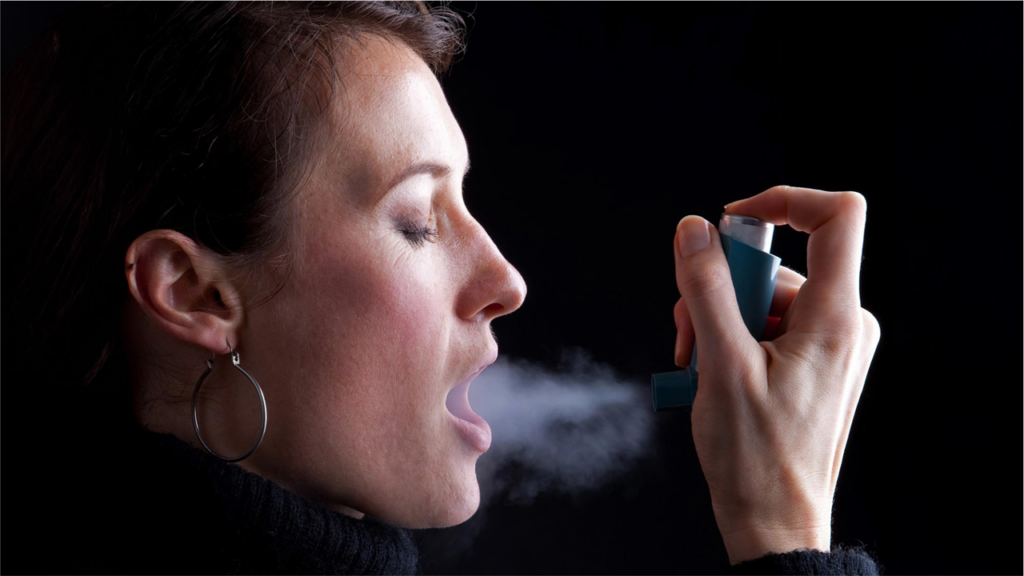Study Shows Flu Vaccine Disrupts Menstrual Cycles — Author Says Findings Should ‘Reassure’ Women
Source: Children’s Health Defense
Previous studies have shown that COVID-19 vaccines disrupt women’s menstrual cycles. Now, a new study shows that flu vaccines, whether given alone or in conjunction with COVID-19 shots, caused women to have longer menstrual cycles.
Emily Boniface, co-author of a study published Tuesday in JAMA Network Open, told MedPage Today the findings can help clinicians reassure their patients that “any menstrual length changes that they might experience following vaccination are temporary and unlikely to be clinically concerning.”
Laura Payne, Ph.D., of Harvard Medical School and McLean Hospital in Boston, told MedPage the study “points to” longer menstrual cycles not being a problem and not being related to fertility issues.
However, internal medicine physician Dr. Clayton Baker suggested the study’s authors and MedPage downplayed the study’s findings. Baker said the fact that 5% and 6% of women in each group had their menstrual cycles extended by eight days “is a very significant finding.”
“This means that 5-6% of women have a substantial disruption in their menstrual cycle on the cycle that they get the shots, and roughly a quarter of those women continue to have a menstrual cycle disruption in subsequent cycles,” he said. “This is a major finding. This is not a minor finding.”
If 6% of people experienced an anaphylactic reaction to a drug, the drug would never be approved by the U.S. Food and Drug Administration, Baker told The Defender.
According to the study, 1,501 women who took either the flu shot alone (791) or both shots together (710) experienced their menstrual cycle increased by a statistically significant 0.4 days and 0.49 days in their first cycle after being vaccinated. Their subsequent cycles were either normal or almost normal.
However, a “clinically meaningful” group of women in the study saw their cycle increase by eight or more days — both with the flu shot alone (4.7%) or with both vaccines together (5.9%).
Among these women, 27.8% and 20.5%, respectively, continued to experience cycles extended by eight days or more in their subsequent menstrual cycles.
The effect was more significant for women vaccinated in the follicular phase of their cycle, which is typically the first 14 days.
The authors said the results were similar to findings from studies about the effect of the COVID-19 vaccine on women’s menstrual cycles. They concluded that their findings may “help clinicians confirm the utility of vaccination” for patients concerned with impacts on their cycle and that they were important in the context of “vaccines and rampant misinformation.”
Payne told MedPage it was “so interesting” that the flu vaccine produced the changes by itself. “This shows there is some inflammation, immune system, and sex hormone relationship that exists probably across many vaccines.”
Baker took issue with downplaying the findings. “We’re dealing with a statistically significant finding of potential real importance medically, that is being downplayed as insignificant. And personally, I think that’s irresponsible.”
Study’s findings ‘should not reassure women the shots are safe’
The authors analyzed cycle data from a digital birth control app called Natural Cycles, which women use to plan or prevent pregnancy without the use of hormonal contraception.
Participants, ranging in age from 18 to 45, responded to a message from the app about the receipt and timing of their vaccines in August 2023 or later.
The authors said they didn’t know why the shots caused longer cycles, but they offered a hypothesis.
“Our results support the current hypothesis that the immune response triggered by vaccination temporarily impacts the hypothalamic-pituitary-ovarian axis, although it is unclear whether this is a series of temporary responses or 1 primary change and at what level of the axis this occurs,” they wrote.
Baker said that without understanding why the shots affected women’s cycles, it was not possible to assess the vaccines’ safety.
He said the authors “have a hypothesis that they state about what the source of the alteration is. But we don’t know. We can’t say it’s insignificant, and we can’t say it’s not dangerous if we don’t know what the mechanism is,” he said.
He added:
“There’s no good reason why a vaccine should disrupt the follicular phase of a woman’s menstrual cycle. It doesn’t have female hormones in it, it doesn’t have pituitary hormones in it. Why is it doing this? This is a concern.”
Baker said research on the flu vaccine’s effect on menstrual cycles is long overdue.
“If you are going to give any medication to a woman of childbearing age, particularly if you’re going to recommend it broadly to healthy people, which is exactly what vaccines are marketed for, you absolutely should have done this research decades and decades and decades ago,” he said.
Children’s Health Defense Senior Research Scientist Karl Jablonowski said the fact that this information was being identified after the flu vaccine has been on the market for decades should raise flags — not reassure women the shots are safe.
He said:
“The authors claim this is the ‘first data point about how influenza vaccination might affect menstrual cyclicity’ and that these findings can ‘help clinicians’ to reassure their patients. The first influenza vaccine was developed in 1940 for the U.S. military and for the public in 1945. It’s been around for 80 years.
“The ‘first data point’ 80 years after its use began is not reassuring to anyone and painfully demonstrates the scientific void concerning vaccines.”


This article was funded by critical thinkers like you.
The Defender is 100% reader-supported. No corporate sponsors. No paywalls. Our writers and editors rely on you to fund stories like this that mainstream media won’t write.
Dr. James Thorp, an obstetrician and gynecologist who has extensively documented harm to women from the COVID-19 mRNA vaccines, told The Defender the study unjustifiably downplayed the impacts of the COVID-19 vaccines on women’s menstrual cycles.
Several major studies linked that vaccine to significant changes in cycle length, flow and menstrual pain. Thorp said claims that the COVID-19 shots had only minor impacts on women’s cycles were blatantly false.
Thorp also pointed out that people who received a flu vaccine formulated for the 2024-2025 flu season had a 27% higher risk of getting the flu than those who didn’t get the vaccine, suggesting “the vaccine has not been effective in preventing influenza this season,” according to a new preprint study at the Cleveland Clinic.
Related articles in The Defender
- Most Studies Show COVID Vaccine Affects Menstrual Cycles, BMJ Review Finds
- NIH Study Confirms COVID Vaccines Affect Menstrual Cycle
- COVID Vaccines Increase Risk of Heavy Menstrual Bleeding, New Study Confirms
- ‘Deeply Concerning’: This Year’s Flu Shots Led to 27% Higher Risk of Flu
- Many Pregnant Women Were Forced to Get COVID Shots. Here’s What Happened to Them.














